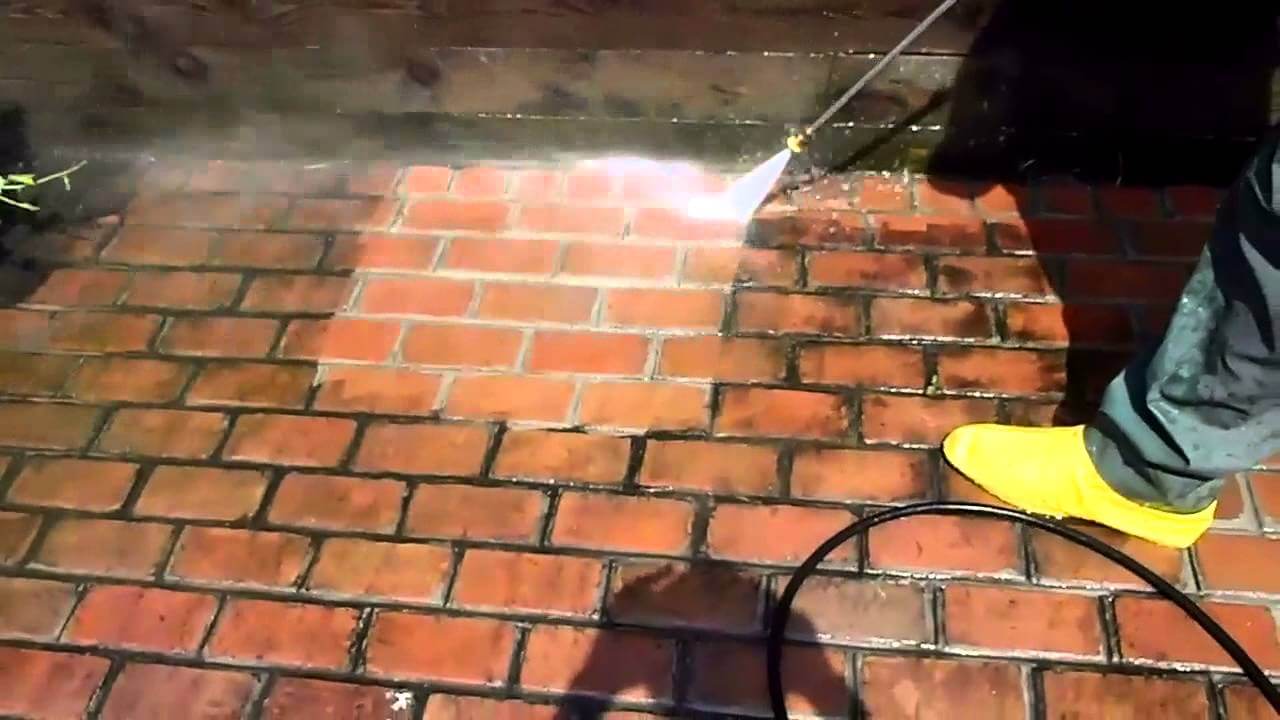There are few cleaning projects as satisfying as power washing. The ability to literally peel paint off of any surface is quite powerful. If you’ve notices any mold building up on vinyl, gum on the sidewalk, or oil sealed onto your driveway, a pressure cleaning is certainly advisable. This incredible machine can clean any solid surface. Whether you decide to hire a pro or DIY, power washing is the most powerful form of house washing available.
“Jack of all trades, master of none, though oftentimes better than master of one.” - Anonymous
Brick and Concrete

If you’ve never seen an oil spill cleared off of mortar, than you’re in for a treat. Hardscapes are essentially what power washers were designed for. If you spilled gasoline a year ago or if tree sap has caked itself onto your property, a pressure cleaning service will take that off in minutes if not seconds.
Power On:
You can quite literally see the top layer of grime being stripped away as the power washer does its job. This makes it very easy to see the progress that’s being made, as well as the spots that have been missed. The before/after effect is visually stunning. You can take a pressure cleaner to the following surfaces without issue:
- Vinyl
- Brick
- Trex
- Cement
- Concrete
- Wood
- Composite
Gas or Electric?

The real debate in the pressure cleaning world is whether to go with gas or electric washers. Or, do you want power or durability in your pressure cleaner. Gas units typically are more powerful than their electric counterparts, but electric models require less maintenance.
Gas Pros:
- At 4000 psi, far more powerful that electric
- Able to go anywhere in range of a hose
- Reliable
Gas Cons:
- Requires maintenance
- Unit is generally heavier
- Can cause minimal damage with improper use
Electric Pros:
- Lightweight
- Easy to use
- Gets the job done
- Quiet
Electric Cons:
- Requires power cord
- Extension cords are not recommended
- Use caution when mixing water with electricity
No matter which option you go with, either washer will be able to clean your porch, car, deck, or siding. The only real difference is the amount of psi going into the project. This can be a double edged sword anyway.
How Does a Pressure Washer Work

As you can see from the image above, high pressure water cleaning is mostly dependant on the angle of the nozzle. The smaller the angle, the higher the pressure, to the point where an angle of 0 degrees can actually cut through skin. Each nozzle has a different task in mind for usage, and no nozzle will usually result in the cleaner solution mode.
- 40 degrees - great for washing your car
- 25 degrees - cleaning mold
- 15 degrees - stripping surfaces
- 0 degrees - taking of an ancient oil stain from your asphalt that has been cemented on through years of sunlight
- No nozzle - just for dispensing soap
How Much Water Does a Pressure Washer Use Per Minute

Your average garden hose spends about eight gallons per minute. A typical pressure washer will do better than that, expending about five gallons per minute via high velocity. And lower psi washers do even better than that, with some models expending only two GPM worth of water.
Gallons Per Minute
The term psi stands for “Pounds per Square Inch” and is applied to any pressurized unit. GPM or “gallons per minute” therefore is quite simply the amount of water being used by the unit. In turn the CU of a machine, or the amount of “cleaning units” can be found by measuring the GPM x psi.
So overall power washing is fairly straightforward and can be donne either professionally or by yourself. Just be sure you use the right nozzle for the job.
Any cleaning tips and tricks you’d like to share? Let us know in the comments below! Don’t forget to follow us on Facebook for more great tips and inspiration!
Continue Reading:
